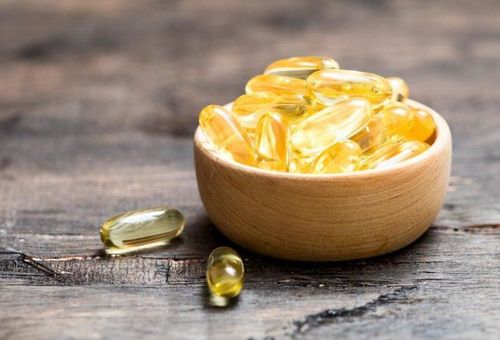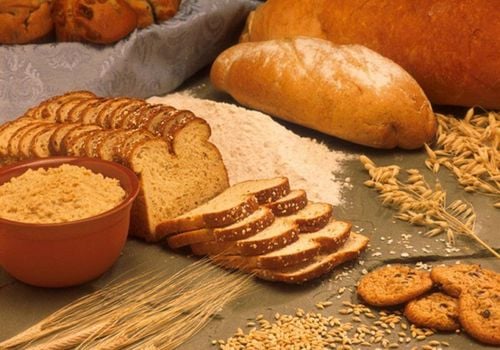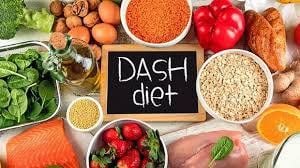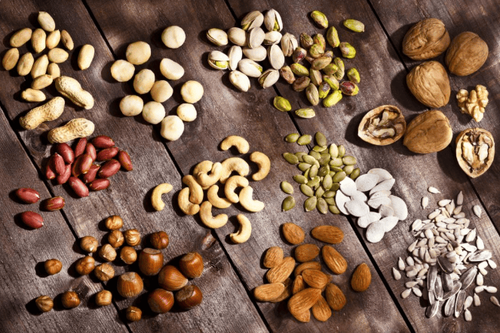This is an automatically translated article.
Escarole is a species of chicory plant that has broad, green leaves, and clusters of foliage that resemble bouquets of roses. Escarole has a slightly bitter, cool taste. Escarole is especially popular in Italian cuisine.
1. Nutritional value of escarole lettuce
In escarole lettuce contains many nutrients and very few calories. For every 2 cups (85 grams) of raw escarole lettuce will provide:
Calories: 15
Carbs: 3 grams
Protein: 1 gram
Fat: 0 grams
Fiber: 3 grams
Iron: 4% of the nutritional value Daily Nutrition Facts
Vitamin A : 58% of the Daily Value
Vitamin K : 164% of the Daily Value
Vitamin C : 10% of the Daily Value
Vitamin B9 : 30% of the Daily Value Daily Nutrition Facts
Zinc : 6% of the Daily Value
Copper: 9% of the Daily Value
With very few calories and no fat, escarole is packed with micronutrients and fiber - just 2 raw cups (85 grams) provide 12% of the daily value for fiber.
With 9% nutritional value, the amount of copper in escarole helps support bones, connective tissue and proper red blood cell formation, while Vitamin D helps ensure proper metabolism and creation red blood cells and white blood cells.
Both of these minerals are especially important for fetal development and are therefore very important for women who are pregnant or planning to become pregnant.

Rau xà lách escarole rất đối với phụ nữ mang thai
2. What are the health benefits of escarole?
2.1 Promotes Gut Health Escarole is mainly a source of insoluble fiber. It contains 12% of your daily fiber needs per 2 cups (85 grams). Escarole lettuce can help keep you against constipation and hemorrhoids.
2.2 Healthy Eyes Escarole lettuce is rich in vitamin A, providing 54% of the nutritional value in just 2 cups (85 grams). This vitamin is very beneficial for the eyes, as it is an important component of rhodopsin, a pigment in the retina that helps you distinguish between light and darkness.
2.3 May Reduce Inflammation Studies show that kaempferol, an antioxidant in escarole lettuce, may protect your cells against chronic inflammation.
However, these studies were limited to rats and test tubes. A human study is needed to fully understand the effects of kaempferol on human health.
2.4 Keep bones and heart healthy Vitamin K is important for normal blood clotting, as well as for regulating calcium levels in your heart and bones. Green leafy vegetables like escarole provide a nutrient called vitamin K1.
A 2-year study of 440 postmenopausal women found that supplementing with 5 mg of vitamin K1 per day reduced the risk of fractures by 50%, compared with a placebo group.
Plus, a 3-year study of 181 postmenopausal women found that combining vitamin K1 with vitamin D significantly slowed the hardening of the arteries associated with heart disease.
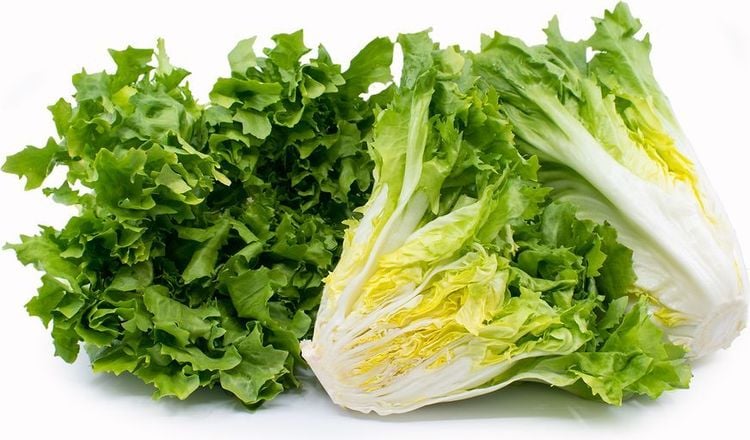
Rau xà lách escarole cung cấp vitamin K1 tốt cho sức khỏe của xương khớp
3. How to prepare and eat escarole
Escarole is a vegetable that is easy to combine with dishes but most especially used in salads. The outer leaves of escarole are bitter and chewy, while its yellow inner leaves are sweeter and softer.
An acid like lemon juice or vinegar can reduce the bitterness of escarole.
4. Some notes to know about escarole lettuce
For those taking blood thinners, you should pay attention to the amount of escarole lettuce loaded into the body. That's because blood thinners like warfarin can interact with vitamin K. Rapid changes in this vitamin can counteract the effects of blood thinners, putting you at risk for serious side effects, like blood clots, which can lead to strokes and heart attacks.
Also, eating escarole regularly can increase kidney stones in people with kidney problems. The high oxalate content in escarole - a plant compound that helps get rid of excess calcium - is filtered through the kidneys and can affect the kidneys.
Any questions that need to be asked by a nutritionist at Vinmec International General Hospital, you can contact Vinmec Health System nationwide or register online HERE.
Reference source: healthline.com
SEE MORE
Nutritional composition of spinach Moringa not everyone is good to eat 6 taboos when eating vegetables




